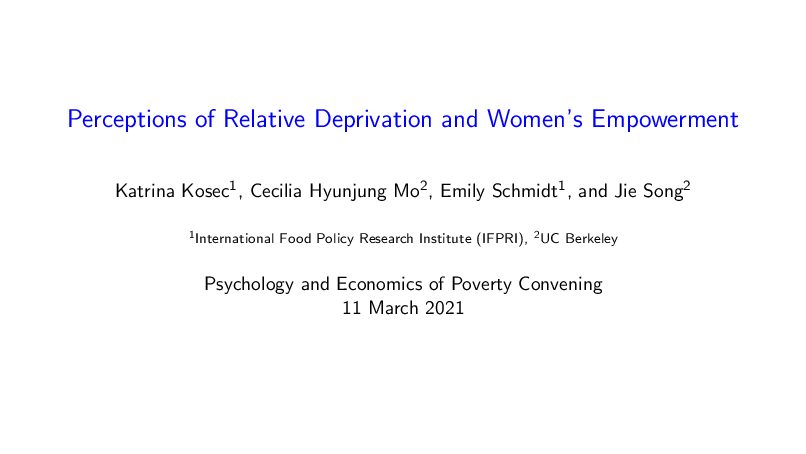Psychology and Economics of Poverty Convening 2021

Credit: Mehmet Turgut Kirkgoz / Unsplash
On March 10 and 11th, 2021, CEGA’s third annual Psychology and Economics of Poverty (PEP) Convening showcased exciting new work in this space with researchers, implementing partners, and policymakers. Abhijit Banerjee, 2019 co-recipient of the Nobel Prize in Economics and Ford Foundation International Professor of Economics at the Massachusetts Institute of Technology, engaged in the keynote fireside chat on Day 2 of the conference (Thursday, March 11th).
Keynote Speaker

Abhijit Vinayak Banerjee is the Ford Foundation International Professor of Economics at the Massachusetts Institute of Technology. In 2003 he co-founded the Abdul Latif Jameel Poverty Action Lab (J-PAL) with Esther Duflo and Sendhil Mullainathan, and he remains one of the Lab’s Directors. Banerjee is a past president of the Bureau for Research and Economic Analysis of Development, a Research Associate of the NBER, a CEPR research fellow, International Research Fellow of the Kiel Institute, a fellow of the American Academy of Arts and Sciences and the Econometric Society. He has been a Guggenheim Fellow, an Alfred P. Sloan Fellow and a winner of the Infosys Prize. Banerjee is co-recipient of the 2019 Nobel Prize in Economics for his work in development economics research.
Agenda and event materials
Recorded presentations and slides are linked below. Click the button to the right to download a PDF of the agenda. Presenters are denoted by italics and an asterisk. A short Q&A followed each presentation and a general discussion followed each session.
Day 1 – Wednesday, March 10, 2021
Session 1: Aspirations, beliefs, and agency
Aspirations, assets, and anti-poverty policies
Kate Orkin, University of Oxford (Economics)*, Robert Garlick, Mahreen Mahmud, Richard Sedlmayr, Johannes Haushofer, Stefan Dercon
Solidarity breeds prosperity: Comparing independent versus interdependent initiative interventions on women’s economic development in West Africa
Catherine Thomas, Stanford (Psychology)* , Hazel Markus, Gregory Walton, Soumaila Abdoulaye Sambo, Patrick Premand, Thomas Bossuroy
Do investments in psychological wellbeing and non-technical skills complement poverty reduction
programs? Evidence from Rwanda
Megan Lang, UC Berkeley (Economics)* , Ed Soule, Catherine Tinsley
Nurturing personal agency: Aligning beliefs, thoughts and feelings to advance human flourishing in
resource poor settings
Anita Shankar, Johns Hopkins Bloomberg School of Public Health (Medical Anthropology)*
Session 2: Methods: New psychometric measurements using data-driven approaches
Overview talk
Aaron Fisher, UC Berkeley (Psychology)*
Application example: Identifying psychological trauma among Syrian refugee children for early
intervention: Analyzing digitized drawings using machine learning
Sarah Baird, Jennifer Muz, Raphael Panlilio, Stephanie Smith, Bruce Wydick, University of San Francisco
(Economics)*
Application example: Non-cognitive skills development and school-based violence reduction in Central
America
Lelys Dinarte, World Bank Development Research Group ( Economics )* , Pablo Egana-DelSol, Claudia Martinez
Session 3: Consumption, cognitive constraints and over-optimism
Taxing the poor twice: Poverty, bandwidth, and utility from consumption
Heather Schofield, UPenn School of Medicine (Medical Ethics and Health Policy)* , Atheendar Venkataramani
Are high-interest loans predatory? Theory and evidence from payday lending
Hunt Allcott, Joshua Kim, Dmitry Taubinsky, UC Berkeley (Economics)*, Jonathan Zinman
Budget neglect in consumption smoothing: A Field experiment on seasonal hunger
Ned Augenblick, Kelsey Jack, Supreet Kaur, Felix Masiye, Nicholas Swanson, UC Berkeley (Economics)*
Day 2 – Thursday, March 11, 2021
Keynote – Fireside chat and Q&A
Abhijit Banerjee, Massachusetts Institute of Technology and Abdul Latif Jameel Poverty Action Lab*
Session 1: Poverty and attention
Cognitive endurance as human capital
Christina Brown, UC Berkeley (Economics)* , Supreet Kaur, Geeta Kingdon, Heather Schofield
Can ecologically relevant stimuli improve task performance for people living in poverty?
Ethan Young, Utrecht University (Psychology)*, Willem Frankenhuis, Bruce Ellis
Session 2: Inequality and preferences
Pro-Poor transfers and economic preferences of the rich and poor: Evidence from a four year partial
population experiment
Nicolas Cerkez, Adnan Q.Khan, Imran Rasul, University College London (Economics)* , Anam Shoaib
Children’s motivated reasoning about social inequalities after being experimentally assigned to a rich or poor social group
Xin Yang, Yale (Psychology)*
Perceptions of relative deprivation and women’s empowerment
Katrina Kosec, International Food Policy Research Institute (Political Economy)*, Cecilia Mo, Emily Schmidt, Jie Song
Session 3: Intergenerational transmission: Beliefs and cognition
The Fetal origins of cognitive aging
Landry Kuate, University of Ottawa (Economics)* , Roland Pongou
Biased memory and intergenerational transmission of fertility norms
Maximilian Mueller, UC Berkeley (Economics)*
















